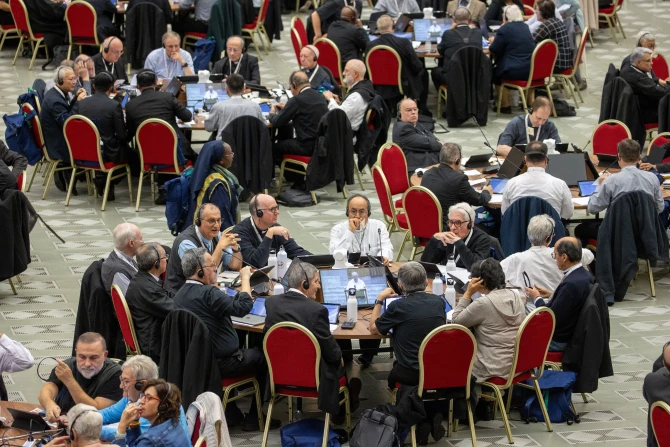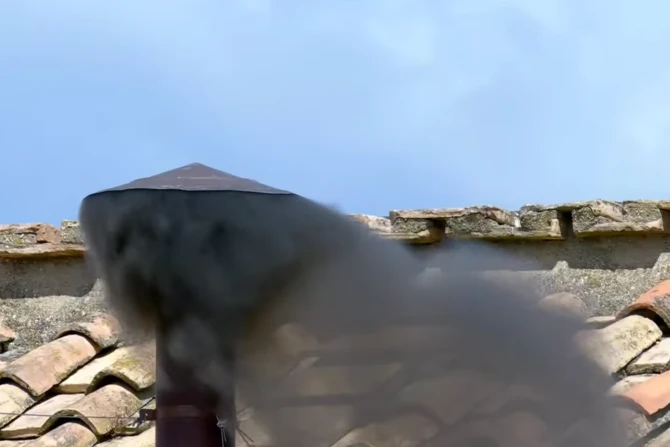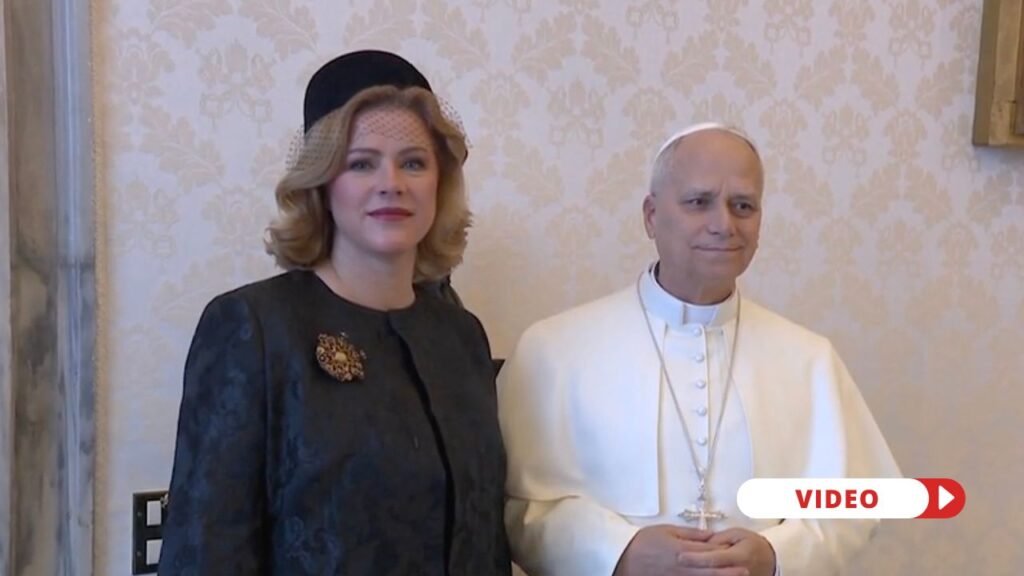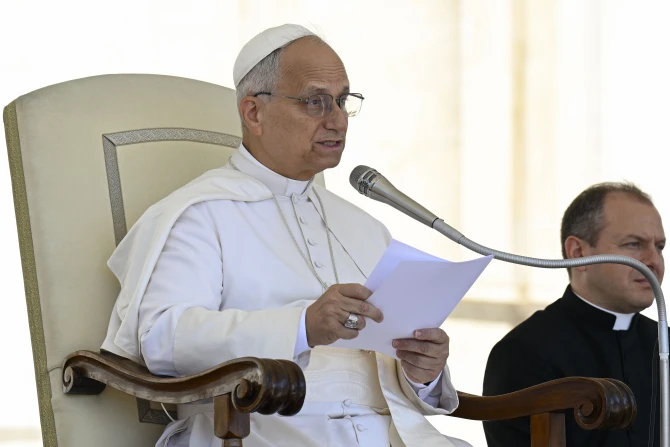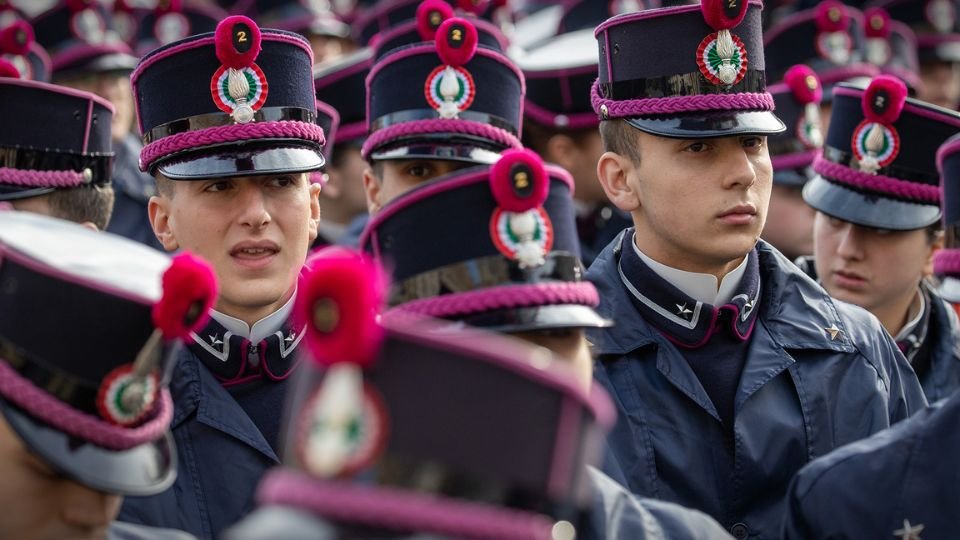Four German bishops, resisting the move of turning the German Synodal Way into a permanent council, have expressed their gratitude for the Synod on Synodality, which concluded Oct. 27 in Rome.
The statement by Cardinal Rainer Maria Woelki of Cologne and Bishops Gregor Maria Hanke, OSB, of Eichstätt; Stefan Oster, SDB, of Passau; and Rudolf Voderholzer of Regensburg stated: “[We] are willing to embark on the path initiated in the Roman synod with their fellow bishops and with as many other participants from as many Church groups as possible.”
They continued: “[It is] with great gratitude that we stand behind the final document of the 16th World Synod of Bishops, which Pope Francis has confirmed and released for publication.” Oster himself was a participant in the Synod on Synodality, in which many people who are not bishops were also entitled to vote for the first time.
The final document of the 16th World Synod of Bishops, which Pope Francis has confirmed and released for publication, is “supported with great gratitude,” the four bishops said. Oster himself was a participant in the synod in Rome.
“In a special way, the bishops appreciate the clear emphasis on the work of the Spirit as the protagonist of a synodal and missionary Church,” said the statement issued Monday morning. “Four of the five main headings of the document speak of ‘conversion’ to which the Holy Spirit calls — of conversion in the heart of every baptized person, of conversion in relationships, in processes, and in commitments.”
“The essential goal of a synodal Church is also strongly emphasized: the mission and the formation of missionary disciples who go together to proclaim the Gospel and invite people into friendship with Christ,” the bishops said in their statement.
Many of the proposals formulated in the final document confirmed and released by the pope are “already structurally possible in Germany, especially through the numerous bodies of consultation and co-determination that already exist.” The task, the German bishops said, is to “contribute to their spiritual deepening, to the improvement of participation, and to a stronger focus on mission.”
There is “hope that the continuation of the Synodal Way in Germany can also be a path of conversion,” Woelki, Hanke, Oster, and Voderholzer explained.
“[We] experienced the meetings in Frankfurt as contradicting what the Synod of Bishops in Rome consistently practiced in a ‘safe space’ (Pope Francis) — a setting where spiritual discernment, mutual trust, listening, and a focus on missionary discipleship could flourish. In [our] view, these essential elements were largely absent in Frankfurt.”
“Instead — according to [our] impression and that of many others — there was a parliamentary-like process of pure majority procurement and not of spiritual discernment, as the final document urges us to do,” the bishops said. “In this way, a large majority in the chamber with a liberal attitude to Church policy issues wanted to push through their issues under massive, public pressure. In doing so, however, it has caused quite a few irritations and injuries among the entire people of God.”
“The Frankfurt Assembly’s exclusive identification of four main topics as those that would structurally favor abuse hardly holds up according to current knowledge,” the four bishops pointed out. “Moreover, two of the four topics (celibacy and sexual morality) were not addressed in the final document of the World Synod of Bishops. On the question of the possible participation of women in sacramental ordination, there is no new state of affairs after the World Synod of Bishops. And the question of power, the negative effects of which have been massively denounced by Pope Francis under the heading of ‘clericalism,’ is answered in the final document with a comprehensive draft of a common, spiritual path for the Church.”
The four bishops concluded that, in their view, “the goals of the German Synodal Way and the global Church process of the Synod [on Synodality] do not go hand in hand in terms of content.”
Woelki, Hanke, Oster, and Voderholzer chose not to participate in the synodal committee after the conclusion of the plenary meetings of the Synodal Way, which is to lead to a synodal council within the next few years. Such a synodal council as a body for joint consultation and decision-making by bishops and laity has already been rejected by Vatican authorities.
The Synodal Way — “Synodaler Weg,” sometimes translated as Synodal Path — is not a synod but a highly controversial event designed to create “pressure” on the Church, as one founder has admitted.
The polarizing process, which cost several million dollars, not only aims to establish a permanent synodal council: Delegates also passed several resolutions to change Church practices based on transgender ideology and have called for the priestly ordination of women, same-sex blessings, as well as changes to Church teaching on sexual acts.
This article was first published by CNA Deutsch, CNA’s German-language news partner, and has been translated and adapted by CNA.

